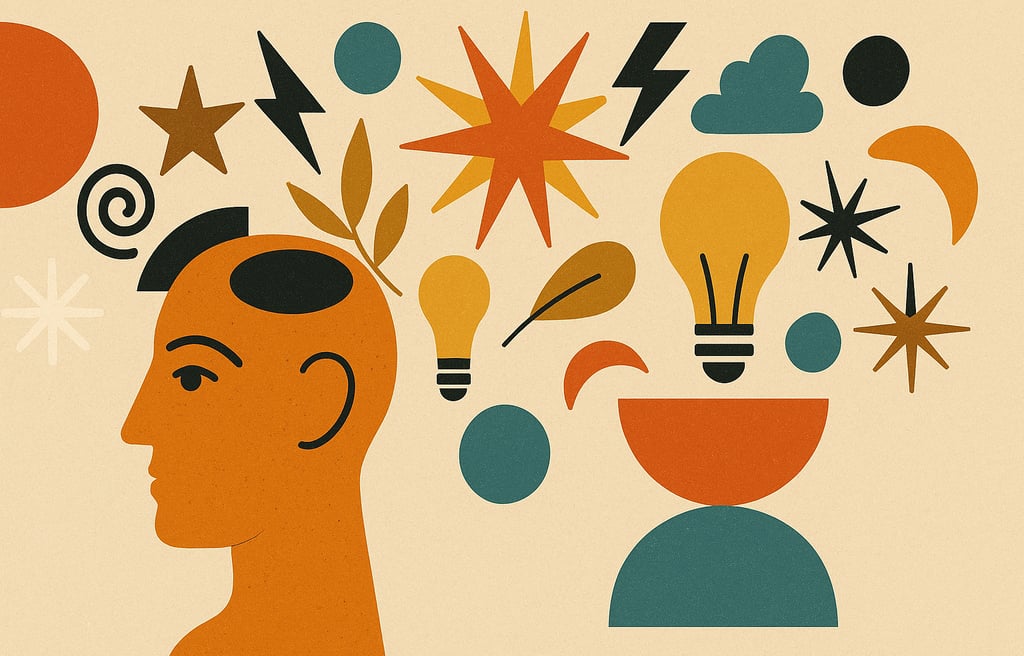In the Age of AI, the Future of Marketing Is Human
The rise of AI isn’t the end for human creativity. It’s a clarifying moment for what made our work valuable in the first place.
5/13/20252 min read


Not long ago, we were teasing Clippy for trying to help us write letters to grandma. (Rest in peace, sweet paperclip prince.) Now we’ve got AI spinning up campaign strategies, email sequences, and even branding in less time than it takes to down your morning’s first Celsius.
Turns out the robots didn’t just arrive. They came bearing pitch decks.
It’s impressive. It’s useful. And it’s tempting to panic.
But the rise of AI isn’t the end for human creativity. It’s a clarifying moment. It should remind us what made our work valuable in the first place: vision, not volume—intention, not just iteration.
In the midst of all this automation, something unexpected is becoming clearer than ever. The future of marketing belongs to the most human among us.
What AI Can Do—and What It Can’t Want
Let’s acknowledge the elephant in the server room: AI is astonishing. It can write. It can analyze. It can generate strategies better than most brainstorming sessions fueled by stale donuts and passive-aggressive Zoom silence.
But it doesn’t want anything.
It doesn’t care whether people are free. It doesn’t care whether your message inspires or manipulates. It doesn’t long for beauty or liberty or connection.
AI can imitate outputs. But it can’t originate intention.
And in the end, intention is what gives creativity its edge. It’s what makes a piece of marketing not just clever but convincing. Not just pretty but persuasive. Not just automated but alive. Not artificial intelligence but actual intelligence.
Beginner’s Mind, Seasoned Hands
There’s a concept in Zen called shoshin, or “beginner’s mind”—an openness that sees things without the crust of cynicism or overconfidence. It’s not naïve. It’s alert. Curious. Willing to see clearly what is, and to imagine freshly what could be.
That mindset is our very human secret weapon.
Because while AI trains itself on what has been, a liberty-minded marketer must remain awake to what could and ought to be. That requires a kind of inner spaciousness—one that resists the pressure to become a productivity machine and instead asks, “What are we really here to do?”
It’s about essence over pure efficiency.
And it’s precisely because we now have AI that this human clarity becomes even more critical. The tools get faster. The ideas need to get deeper.
What we get with AI is the ability to scale rapidly, test wider, and iterate endlessly. But none of that answers the most important question: to what end?
AI doesn’t decide what deserves amplification. You do.
So if you are unclear about your vision, your values, your intention, AI will only amplify your confusion.
You Are Not a Robot (Unless You Are, in Which Case—Hi.)
The temptation right now is to race AI, to prove you can be just as fast and efficient.
Resist that temptation.
You were never meant to be a robot. Your job is not to write like a bot or brand like an algorithm. Your job is to envision the future, choose what matters, and to help others care about it, too.
Of course, use the tech. Train your GPT. Let it help you build smarter, faster, leaner campaigns.
But remember: the competitive marketer of the future isn’t the one who becomes a better machine. It’s the one who becomes more fully human.
